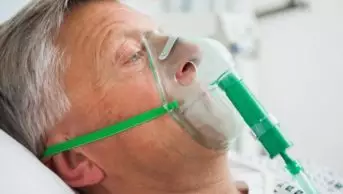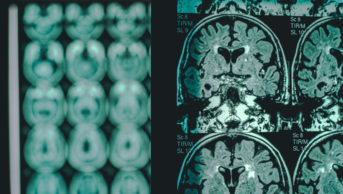
Elizabeth Melusky / Alamy Stock Photo
No publicly-funded medical cannabis trials have produced an outcome, more than five years since its use was legalised in the UK, the National Institute for Health and Care Research (NIHR) has confirmed.
The NIHR, which oversees government-funded health research, told The Pharmaceutical Journal on 14 February 2024 that two trials “relating to the use of cannabis for the treatment of epilepsy are still under operational consideration”, but that they are yet to begin.
A spokesperson for the NIHR added that although it awarded funding in September 2018 for the CANTOP-RCT study, which aimed to evaluate cannabidiol as a treatment for psychosis, the trial “will no longer proceed”.
“This is primarily due to difficulties in securing a supply of cannabidiol for the study, and developments in the research landscape which impacted the original funding rationale,” they said.
The NIHR’s comments come after health minister Andrew Stephenson said, in answer to a parliamentary question on 9 February 2024, that the two upcoming NIHR-funded trials on epilepsy would start “as soon as possible”, adding that public funding was available for “high quality applications” to research the uses of medicinal cannabis.
Following the legalisation of medical cannabis in November 2018, only three cannabis-based medicines have been approved for use, with data from NHS Business Services Authority showing that, as of August 2023, fewer than five NHS prescriptions for unlicensed cannabis-based products for medicinal use have been made per month.
In October 2020, The Pharmaceutical Journal reported that an NIHR invitation to apply for funding to conduct clinical trials into the efficacy of medical cannabis attracted one application, which was later declined.
The call, which was open from October 2018 until July 2019, invited proposals for primary clinical research into the safety and clinical effectiveness of cannabis-based medicinal products.
The declined proposal planned to research cannabidiol for smoking cessation in generalised anxiety disorder.
A spokesperson for the NIHR said at the time that “the themed call closed in July 2019, but medicinal cannabis remains a priority”.
Mike Barnes, a former neurologist and founder of the Medical Cannabis Clinicians Society and Cannabis Industry Council said the “fundamental problem” is that the mechanisms are not in place for assessing a “botanical medication”.
“Medical cannabis doesn’t lend itself to the pharmaceutical assessment process because you can’t do a double blind placebo-controlled approach on it,” he said.
“You can do it for pure CBD [cannabidiol] or pure THC [tetrahydrocannabinol], but not in a full plant because it has over several hundred components in variable proportions, which pharmaceutical studies don’t like.
“So you would have to do real-world study and NIHR doesn’t like those, so those would be rejected if you applied for that, because they [NIHR] are about the pharmaceutical assessment process.
“Cannabis companies, contrary to popular belief, don’t have millions of pounds and they can sell their product as unlicensed medicines, so why would they bother to put forward an application to a study?,” he added.
The spokesperson for the NIHR said its Clinical Research Network had supported recruitment to, but not funded, 8 studies that have looked into the use of medicinal cannabis over the past three financial years. These studies recruited 107 participants.


